Envoy pushes Syria peace talks as UN warns of child hunger
UN-Arab League envoy to Syria says no peace conference will be possible without the Syrian opposition.
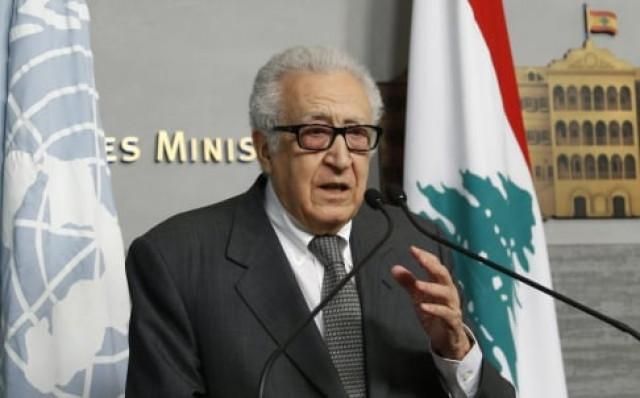
United Nations Peace Envoy for Syria Lakhdar Brahimi. PHOTO: REUTERS
Hoping to build on the momentum of last month's US-Russia accord to destroy Syria's chemical arsenal by mid-2014, envoy Lakhdar Brahimi has been criss-crossing the region to rally support for the so-called Geneva II talks.
Syria's opposition has refused to attend unless President Bashar al-Assad's resignation is on the table- a demand rejected by Damascus. Rebel groups have warned that participants would be considered traitors.
"If the opposition does not participate there will be no Geneva conference," Brahimi said in Damascus on Friday, before travelling to Beirut.
The veteran Algerian diplomat met Assad on Wednesday, and said the Syrian government had agreed to take part in the talks and that the opposition was "trying to find a way to be represented".
The 31-month-old conflict has also triggered a massive humanitarian crisis. On Friday, the UN's food aid agency voiced fears about severe food shortages and children going hungry in besieged areas.
"The World Food Programme is concerned about the fate of many Syrians trapped in conflict areas and still in need of urgent food assistance," spokeswoman Elisabeth Byrs told reporters in Geneva.
"We are monitoring worrying reports emerging of malnutrition among children in besieged areas," she said.
"There is an upward trend in the number of children being treated with moderate and severe acute malnutrition. Most of these cases are being reported from two referral hospitals in Damascus," added UNICEF spokeswoman Marixie Mercado.
Hundreds of women, children and the elderly were evacuated this week from the besieged town of Moadamiyet al Sham, southwest of Damascus.
Many other areas are still surrounded by loyalist troops, and on Friday many such districts in the southern belt of Damascus came under fierce bombardment, activists said.
In neighbouring Lebanon, the UN Children's Fund reported Friday that more than 400,000 Syrian refugee children were in urgent need of help, especially as the harsh winter months approach.
"The international community has not only a humanitarian obligation to the children but a responsibility to match Lebanon's commitment" to helping the refugees, said UNICEF director Anthony Lake, who recently visited the country.
Meanwhile, the main opposition National Coalition said it plans to meet November 9 to decide whether to attend the Geneva peace talks, but the Syrian National Council, a key bloc member, threatened to quit if it does so.
On Friday, the Coalition criticised the Assad regime for its "lack of courage to respond" to a reported Israeli air strike, and described the loyalist army as "a tool that kills people rather than protecting them".
The reported air strike on a military base in regime stronghold Latakia on Wednesday would be the first Israeli strike on Syria since a US-Russia accord on chemical weapons averted punitive US military action last month.
Israel did not comment on the reports, but has struck Syria in the past and warned it will continue to take action to prevent weapons from falling into the hands of Lebanese Shia group Hezbollah.
Saudi-owned al Arabiya television said Israel hit a shipment of surface-to-surface missiles destined for Hezbollah, which is fighting alongside the regime.
A US official confirmed to AFP that "there was an Israeli strike", but gave no details on the location or the target.
Syria, which has cooperated with international disarmament efforts, has vowed to retaliate against any attack- but did not respond when Israel carried out two air strikes in May.
Syria's key ally Moscow on Friday was briefed on the disarmament operation, headed by international watchdog the Organisation for the Prohibition of Chemical Weapons, which has led to putting all of Syria's chemical arms under "tamper-proof" seals, media reported.
After the briefing, Russian Deputy Foreign Minister Sergei Ryabkov said Syria's chemical arsenal could be taken out of the country for destruction, RIA Novosti news agency reported.
But how nations go about actually destroying the weapons by a mid-2014 deadline, has been a point of debate.
The Security Council resolution was adopted after a deal was struck between Russia and the United States to avert military strikes on Syria following deadly August chemical attacks near Damascus.
Assad has denied he ordered the attacks and blames rebels for them.
On Friday, Assad forces seized control of the rebel held town of Sfeira in the northern Aleppo province after a 27-day siege, activists said.
Sfeira is strategic because chemical and other heavy weapon stockpiles are kept there.


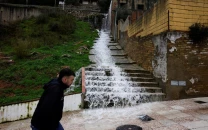
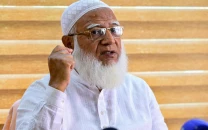
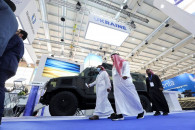
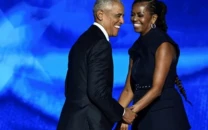
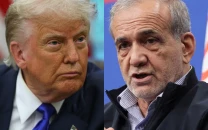












COMMENTS
Comments are moderated and generally will be posted if they are on-topic and not abusive.
For more information, please see our Comments FAQ